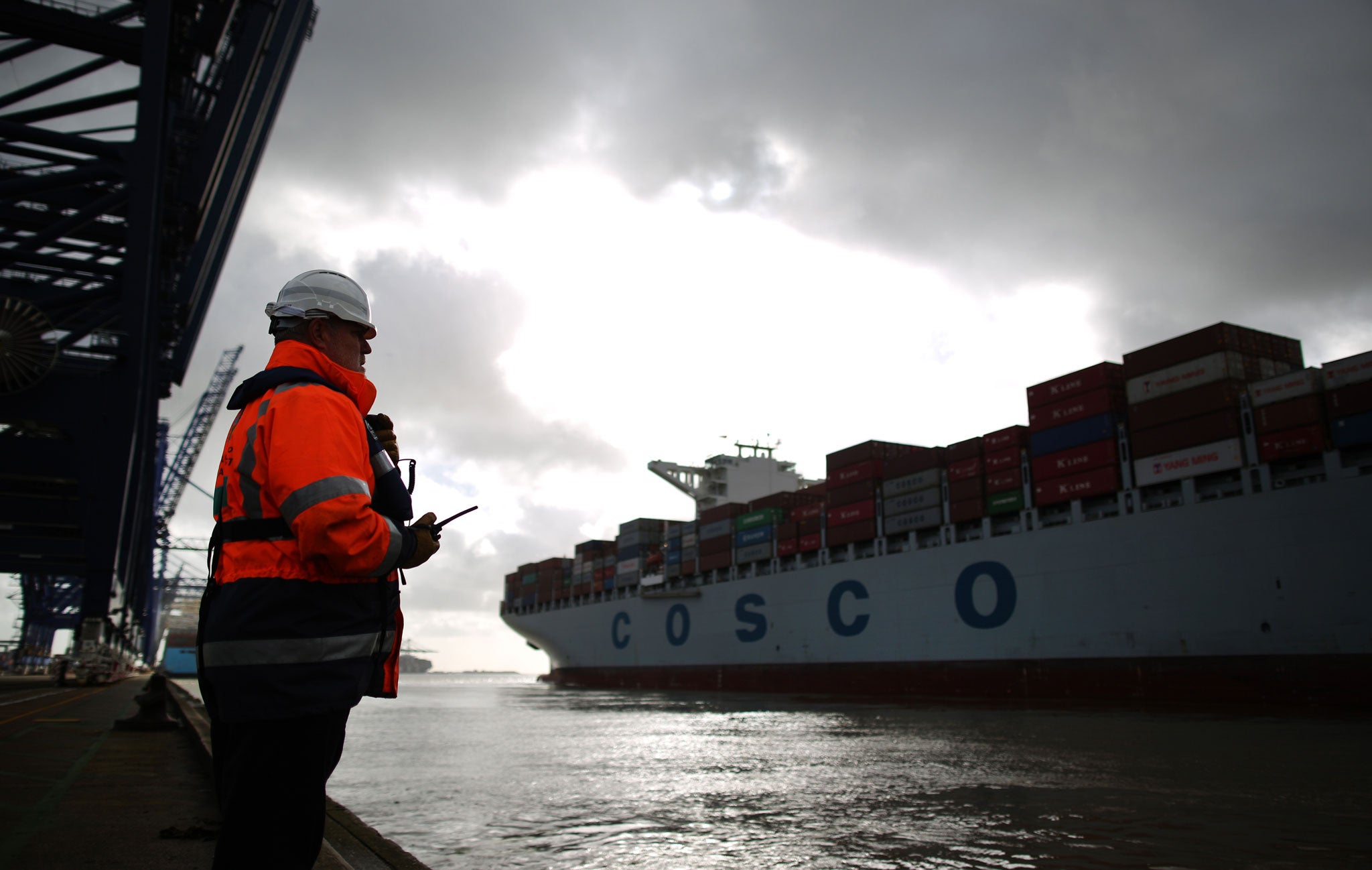Down to the Sea in Ships, By Horatio Clare: Book review - excellent look at ocean-bound trade and exploitation

Your support helps us to tell the story
From reproductive rights to climate change to Big Tech, The Independent is on the ground when the story is developing. Whether it's investigating the financials of Elon Musk's pro-Trump PAC or producing our latest documentary, 'The A Word', which shines a light on the American women fighting for reproductive rights, we know how important it is to parse out the facts from the messaging.
At such a critical moment in US history, we need reporters on the ground. Your donation allows us to keep sending journalists to speak to both sides of the story.
The Independent is trusted by Americans across the entire political spectrum. And unlike many other quality news outlets, we choose not to lock Americans out of our reporting and analysis with paywalls. We believe quality journalism should be available to everyone, paid for by those who can afford it.
Your support makes all the difference.chances are that you have spent the past two weeks wrapping, unwrapping and wolfing down the stuff brought to you by people like the cheerful rating whom Horatio Clare calls "N".
A Filipino, like more than a quarter of the world's merchant seafarers in an industry that needs their "tireless work ethic, positive disposition and sea-going-tradition", N earns around $1000 (all extras included) for each of the 10 or 11 months of every year he spends away from home. That counts as good money for a non-union container ship, professionally managed by a giant maritime corporation; this book also divulges hair-raising horror stories of danger, violence and raw exploitation from the murky "netherworld" of the ocean-going trade.
As one captain tells Clare, Filipino seafarers are "heroes" without whom few gadgets, treats or even basic needs would reach our doors. Yet they go to sea under blatantly discriminatory conditions – much lower pay, and worse career prospects, than officer-class Europeans or Indians. Clare likens this systemic inequity to "apartheid". Still, "Our world now relies on it."
Clare delivers a lyrical, heartfelt but eye-opening chronicle of two long voyages at the diesel-driven heart of the invisible business that keeps us fed, housed, connected and entertained. His book makes a perfect sister vessel to the more panoramic reportage of Rose George's recent, and excellent, Deep Sea and Foreign Going. Courtesy of Denmark's Maersk Lines, which carries 18 per cent of all container traffic, he made a pair of trips on the low-lying behemoths that chug across the seas stacked high with the boxes that hold our possession-hungry lives.
On the awesomely sleek and hi-tech Gerd, 360 metres and 115,700-tonnes, he – with 9,000 assorted containers – sailed from Felixstowe to Los Angeles in balmy late summer via Suez and Singapore (but minus the pirate-infested stretch of the Indian Ocean; Maersk's PR people would not take that risk). With the older, smaller and friendlier Pembroke, a "ragged old battler" in comparison, he went from Antwerp to Montreal through the raging storms, seven-metre waves and ice-bound "zone of white erasure" of a North Atlantic February. What did they carry? Smartphones and shoes; crabs and cars; lobsters and lamps; toys, tyres and televisions; booze, chemicals, umbrellas and even "spacecraft" parts. Coals to Newcastle? How about "300 tonnes of sawn timber" from Germany to thickly forested Canada.
A literary traveller as much as a quick-reflexed reporter, Clare salutes the master wordsmiths who sailed before him (Conrad, Melville, Monsarrat) while never allowing them to hi-jack his journeys. As keen-eyed witness, discreet companion and (you sense) something of a mascot, he does get close to the seafarers and a life of unrelenting discipline which can still feel "bitter, lonely and profitless".
For all his revelations of hardship on board and injustice in the boardroom, Clare has fashioned a love-letter to a way of life whose kit may evolve but whose ethics remain as firmly anchored as ever. From captain to engineer to steward, he transmits the "quiet self-possession" and "inner strength" of seafarers, with their modest expertise and mutual support in the face of "little praise, little status and almost no public understanding".
Months after docking in frozen Montreal, Clare feels the urge to waylay strangers like Coleridge's Ancient Mariner and tell them that without his temporary shipmates "none of this world you call normal could exist". Both romantic and realistic, written from the heart but crafted with a seafarer's "passionate precision", his book will steer you into the new year on a course that may deepen your grasp both of that world, and of ourselves.
Join our commenting forum
Join thought-provoking conversations, follow other Independent readers and see their replies
Comments